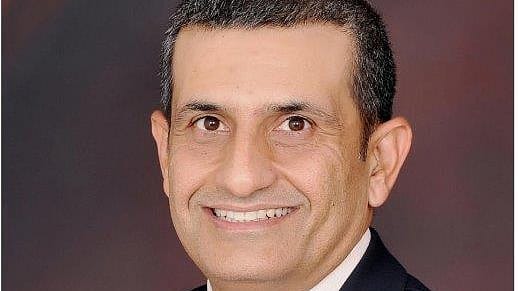‘We are building a huge pool of India-based AI developers’
ADVERTISEMENT

U.S.-based graphics processing unit (GPU) manufacturer NVIDIA recently partnered with the Council of Scientific & Industrial Research (CSIR) to develop India’s first supercomputer based on Artificial Intelligence (AI). Vishal Dhupar, managing director, NVIDIA-South Asia, tells Fortune India that India is his priority market, and the company is forging partnerships to address the country’s problems through technology. Edited excerpts:
Could you briefly distinguish between machine learning and deep learning?
Think of machine learning and deep learning as concentric circles that sit within the category of AI. AI involves machines showing elements of human intelligence. Machine learning is the practice of using algorithms to parse data and then make a prediction about something. Deep learning is a technique for implementing machine learning that involves training neural networks to understand data.
How are enterprises in India using your advances in AI and deep learning?
Our highest priority in India and globally is to play a central role in the computing infrastructure ignited by GPU. We are partnering with labs andresearchers to apply deep learning to solve India’s grand challenges.
For example, last month, we established a Centre of Excellence in partnership with the Central Electronics Engineering Research Institute (CEERI). The NVIDIA Centre of Excellence (CNCoE) will be powered by a five-petaflop AI supercomputer. This will be India’s first industrial AI supercomputer, at CEERI’s Delhi campus and will house a high-throughput AI computing infrastructure that can be leveraged by the CSIR, in collaboration with public and private organisations and industries across the country, to conduct research and development (R&D). The CNCoE is currently powered by five NVIDIA DGX-1 AI supercomputers, providing a purpose-built deep learning development platform based on NVIDIA Tesla V100 GPU accelerators. This is an opportunity to develop AI applications with the help of CEERI’s expertise.
How has the mix of your business changed? What is the share of deep learning and data centres in your revenue?
We have increased our global revenue, specifically in the data centre business, gaming and automotive sectors, among others. Our global revenue in the first quarter FY19 grew 66% over a year to $3.21 billion. Additionally, our global data centre revenue grew 71% over a year to a record $701 million. And, our global gaming business grew 68% over a year to $1.72 billion.
From graphics solutions to Bitcoin to AI, how has NVIDIA evolved over the years?
We set out to transform computer graphics 25 years ago. We have evolved the GPU into a computer brain. The computing platforms we build are highly regarded by gamers, designers, scientists, and enterprises. We are currently in the middle of one of the most important advances in technology, namely deep learning, that has proven to be incredibly effective, robust, and relatively easy to be applied. We are advancing GPU computing for deep learning and AI at the speed of light. We create the entire stack, starting with the most advanced GPUs and systems followed by the software that we build on top of them.
The AI ecosystem is evolving at a rapid pace globally as well as in India. According to a report by Accenture, AI could add $957 billion to the Indian economy by changing the nature of work to create better outcomes for businesses and the society. NVIDIA’s play involves enabling organisations to adopt AI for their workflows. As an AI compute company, our goal is to provide computing tools that will enable the best scientific minds across research, academia, government, enterprises, developers and startups to apply AI in solving some of the greatest challenges of humanity.
What is the future?
Our GPUs have democratised supercomputing and AI, making these tools available to researchers, scientists and developers who want to use them. As advances in technology continue unabated, we see other bottlenecks.
While India is home to a growing pool of developers, there is also a significant amount of brain drain witnessed in the country. A survey by blockchain community, incrypt, stated that close to 80% blockchain developers are likely to migrate out of India. We are in the process of building a huge pool of India-based AI developers, data scientists, researchers and academicians, to understand and deploy AI trends, technology and use cases.
Another important activity focused on developer engagement is the launch of the Developer Connect Program in India. The main aim of this program is to empower developers with skills needed to use deep learning in their applications. This year, we will be organising a GPU hackathon under this, in association with OpenACC, C-DAC and IISER Pune.